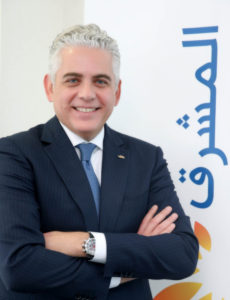UAE’s Construction Sector Needs Standardised Contracts To Counter Delays And Cost Overruns
A construction industry think tank has called for the adoption of standardised construction contracts in the UAE in order to tackle a growing problem of delays and cost overruns on projects in the country.
While these problems are the result of behaviors that are deeply entrenched in the construction industry culture, the coronavirus (Covid-19) crisis has increased the damaging impact of these behaviours and highlights the critical need for reform.
The UAE construction sector is among the worst affected industries by the coronavirus pandemic, which has accelerated the downturn in the UAE’s real estate sector, disrupted supply chains and raised major concerns about worker welfare.
In its second industry white paper, the UAE Construction Industry Think Tank calls for project owners in the UAE to “drive the adoption of standardised contracts” in order to reduce the amount of waste on projects and to help the UAE achieve its Centenary 2071 goals.
Mohammad Khader Al Shouli, Executive Vice President, Global Head of Contracting Finance at Mashreq Bank, said, “The latest White Paper from the UAE Construction Industry Think Tank could not be more timely. The Covid-19 pandemic has exposed the threat caused by the problems in the construction sector. If the industry does not act now to remedy these problems, we see companies facing significant challenges in terms of running their businesses and loss of talent in the immediate future. The current crisis requires that the industry comes together to address these challenges head on. As one of the sector’s trusted strategic partners, Mashreq is committed to the continued growth of projects in the UAE.”
According to the white paper, the practice of writing construction contracts to allow project owners to transfer the majority of the construction risk on to their contractors is a major contributor to disputes between contractors and their clients over who is responsible for unexpected costs and changes. The introduction of a standardised construction contract tailored for the UAE could benefit project delivery in the UAE by restricting bad behaviour and reducing disputes.
Think Tank Recommendations
The call for standardised contracts is one of 26 recommendations made by the UAE Construction Industry Think Tank in the White Paper. Other recommendations include:
- Publish guidance to project owners, clients and contractors to promote standard contracts
- Introduce rewards and penalties against key project targets
- Measures introduced to ensure on-time payments
- Implement processes to make the most out of new technological innovations
- Worker welfare and sustainability requirements to be written into new legislation
- Employ an independent third party to certify work completion
- Dispute resolution mechanisms to be specified in contracts
The White Paper is the second produced by the Think Tank, following the publication of its first White Paper in September 2019, which called for the construction industry to develop new business models including new forms on contract.
The UAE Construction Industry Think Tank was established in 2019 by UAE-based Mashreq Bank and with business intelligence service MEED to identify ways to improve efficiency and reduce waste in one of the UAE’s most important industries.
In its first White Paper, the think tank identified poor planning and outmoded procurement practices as factors in the UAE construction sector’s adversarial culture.
The UAE has about $710bn-worth of building and civil engineering projects currently planned or underway. These projects are vital to putting in place the infrastructure needed to support the objectives delivering the Centennial 2071 vision.
Launched in March 2017, UAE Centennial 2071 provides a vision for the UAE to be the world’s leading nation by its 100th anniversary.
Richard Thompson, Editorial Director, MEED, concluded, “The UAE has high ambitions to be the world’s leading nation. A high functioning construction sector that is able to deliver essential projects on time and on budget, with minimum waste, while at the same time protecting the environment and enforcing best practices, is essential to achieving the objectives of the UAE Centennial 2071 plan.”







